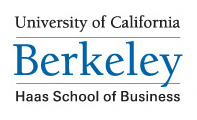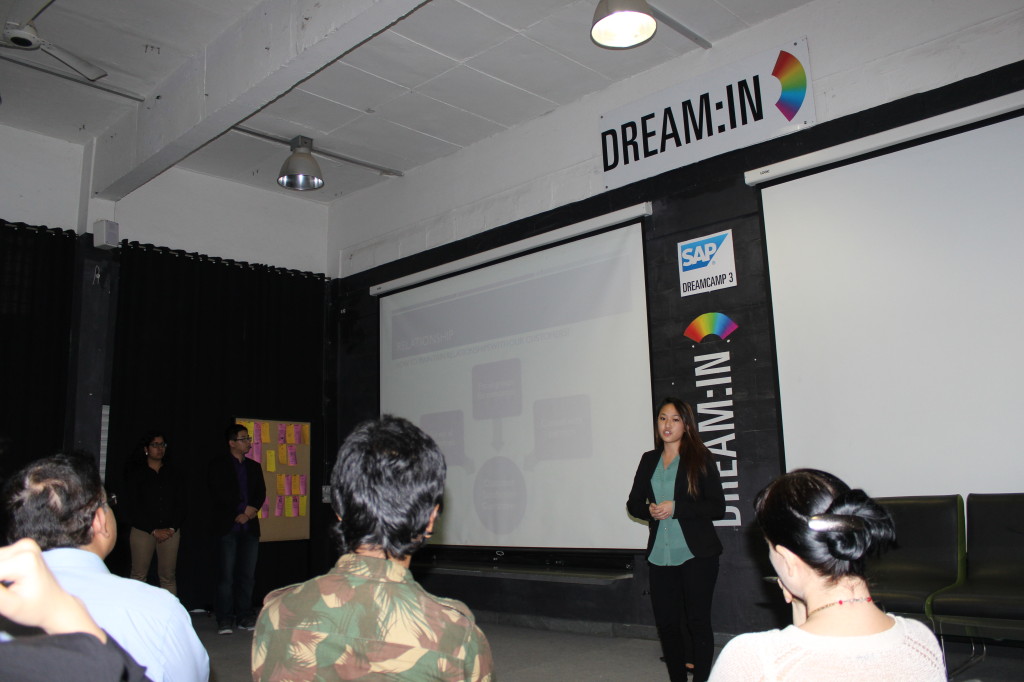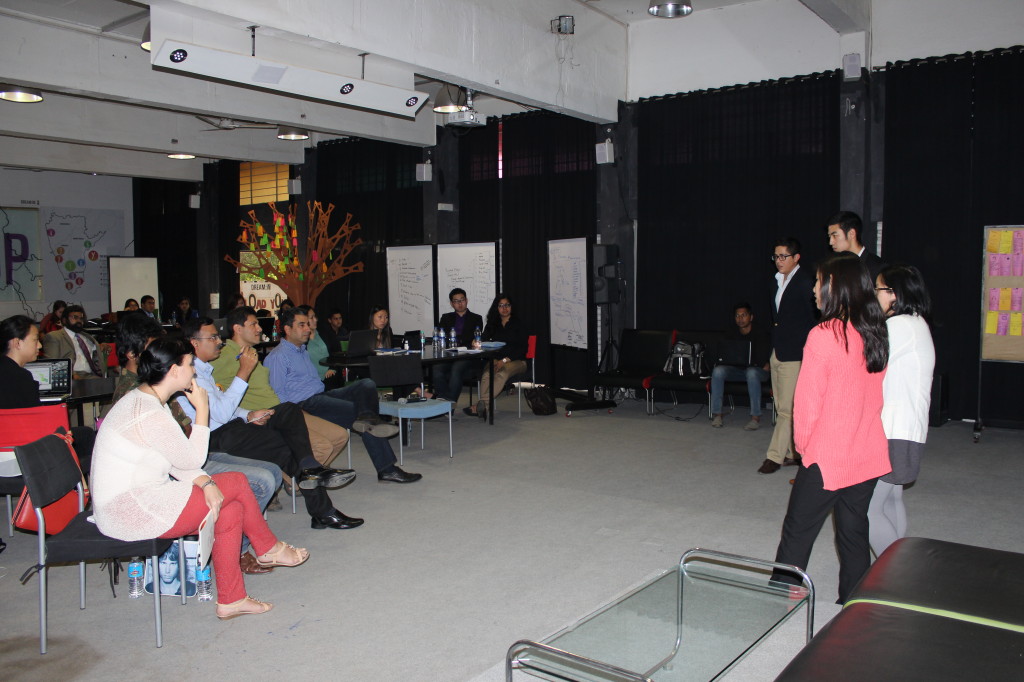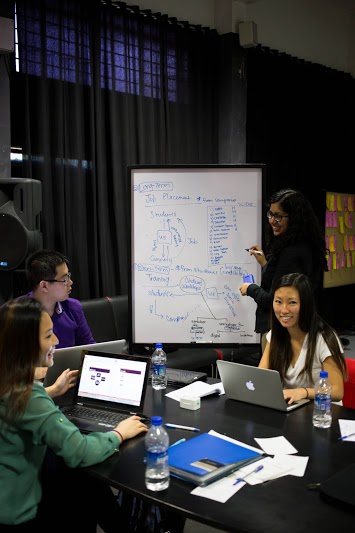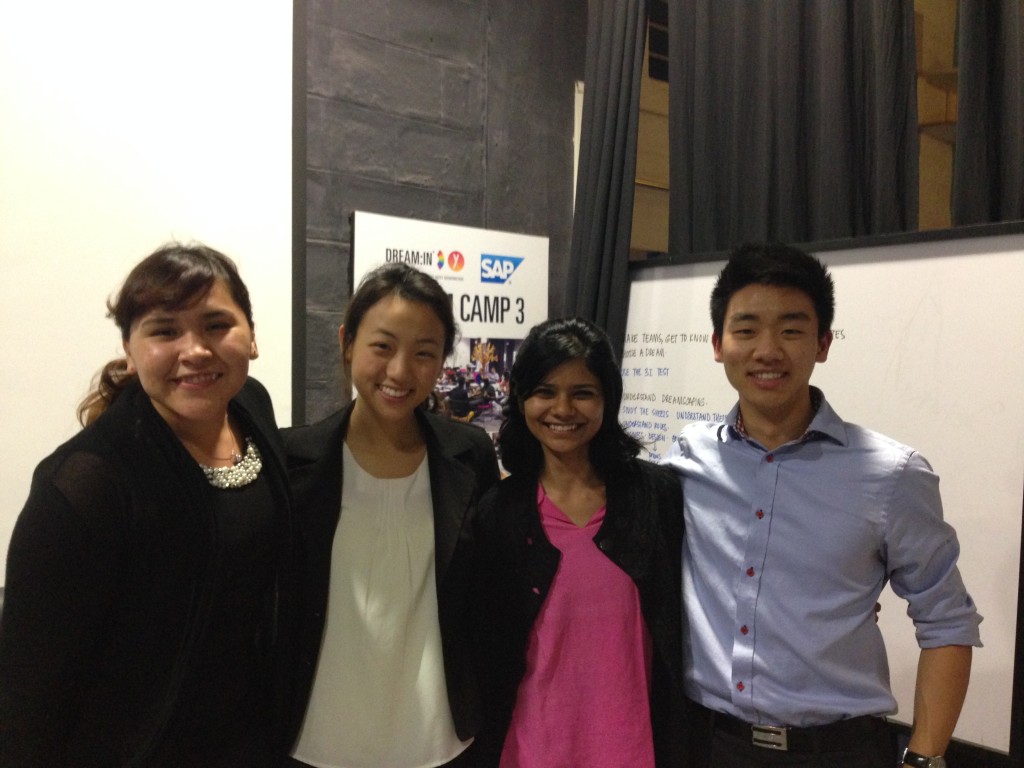Today is the last day of the study-aspect of the UGBA193i students’ official India trip, the Haas group delivered their final presentations to a panel of executives spanning from Apollo Hospitals to design institutions at IDIOM.
In their presentations, students were to offer business model and strategic recommendations for the challenge: “How can companies successfully and profitably operate in the Tumkur District?”
In the Tumkur District, approximately 67% of the population live in rural villages. The Haas teams thus worked together to do extensive research on the challenge’s desired business location.
Four consultants from IDIOM, the local design company, and Apollo Hospitals provided assistance by educating the teams on Indian culture and gave them greater insight into the infrastructure, mindset, and logistics of the Tumkur district.
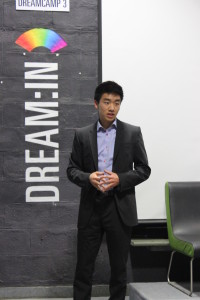 After a short lunch, each group finished their presentations and greeted the judges. Judges included Dr. Anantha Rao, Professor at IIM Bangalore; Rajesh Shah, Haas Alum and Founder and CEO of Blue Planet Run Foundation; Kush Medhora, CEO at DREAM:IN, Social Networks Pvt. Ltd; Aleksandra Rose, Dean of International College of Media & Design in India.
After a short lunch, each group finished their presentations and greeted the judges. Judges included Dr. Anantha Rao, Professor at IIM Bangalore; Rajesh Shah, Haas Alum and Founder and CEO of Blue Planet Run Foundation; Kush Medhora, CEO at DREAM:IN, Social Networks Pvt. Ltd; Aleksandra Rose, Dean of International College of Media & Design in India.
One by one, the six teams presented their business models for starting various companies in the district of Tumkur. The ideas ranged from a company that helps the entire fishing industry run more smoothly and makes fish healthier; a trash collecting firm that works with recycling companies to create reusable materials; and establishing telemedicine units in rural areas lacking in healthcare availability.
Haas Students (divided into six groups) proposed business models to address the pain points of this rural district.
Farming – (how fish farmers could derive greater value from the ordinary fishing industry); Education – Job placement for unorganized labor market (to address the surplus menial labor resident in rural India); Education – Job placement for educated youth with college degrees (platform model that connects and educates all stakeholders); Healthcare – (making it work in a rural setting via telemedicine); Transportation – (making commuting time more productive and enhance value to employers and employees); Waste Management – (turning waste into money).
After each presentation, the judges asked questions about the inner workings and feasibility of their respective business models, as well as delved into the deeper cultural aspects of their recommendations’ usefulness in India. The students learned many ideas for improvement from the expert judges.
The innovative solutions were highly applauded given that they only had one week to come up with solutions to the needs in the very complex emerging economy. Having successfully completed their projects, students realize that with adequate know-how and innovative thinking, they can succeed in spite of existing constraints.
Most certainly, the proposed solutions need further work in development; however, the models and concepts were well received as they were based on sound input from local business students and consultants.
The Haas group was excited to be finished with visiting corporations and their presentations, and celebrated with a nice dinner at a beautiful hotel nearby.
